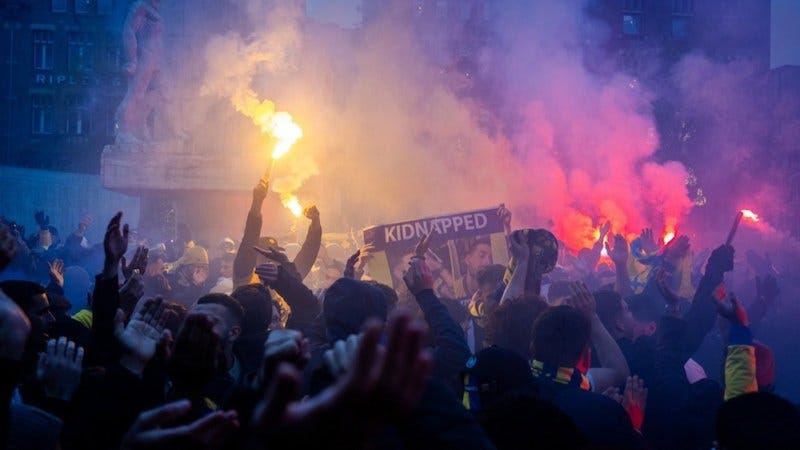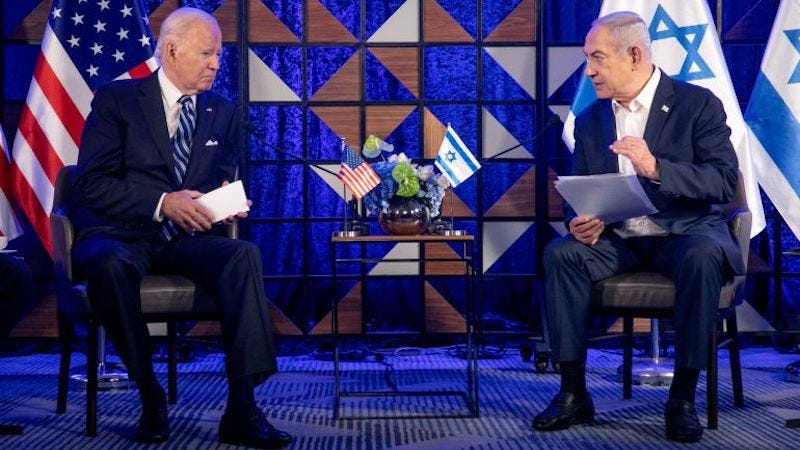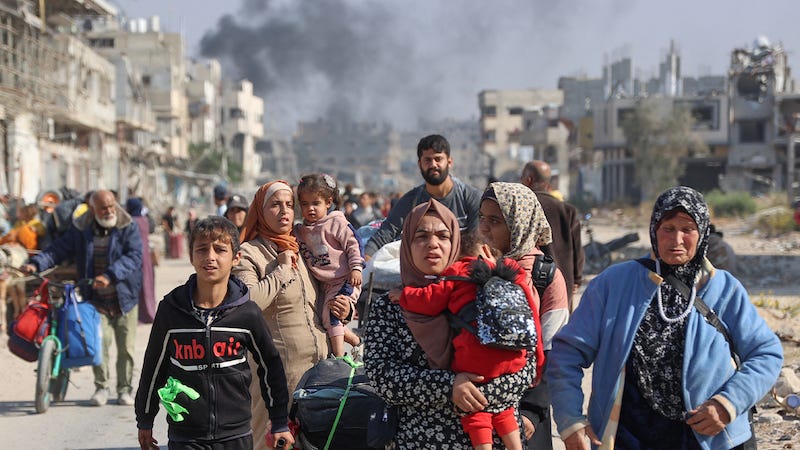The unmasking of the West reveals an ugly face
Israeli hooliganism in Amsterdam may seem minor in the global scope of Israeli–Palestinian relations, but they are a microcosm of the larger narrative that plays out daily in Gaza.
In recent years, the narrative surrounding the behaviour of Israel has become a mixture of political rhetoric, selective outrage, and, on many occasions, blatant distortion. The recent football match in Amsterdam, where Maccabi Tel Aviv supporters turned a sporting event into a festival of violence, highlights the power that mainstream media and political figures wield in shaping public perception in favour of the state of Israel – often to align with a particular political agenda. For those who witnessed or later learned of the events as they truly unfolded, the gap between media reports and reality was glaring and unsettling, raising pressing questions about the manipulation of truth in service of political allegiances.
At the heart of this incident were Israeli supporters who arrived in Amsterdam to watch their team play Ajax in the Europa League (yes, Israel plays in a European league), ostensibly to support their team but quickly transformed the city into an arena for provocations, aggression, and racism where bystanders and residents were not simply caught in crossfire but were specifically targeted. Eyewitness accounts and independent media revealed that Maccabi Tel Aviv fans shouted racist slurs directed towards Palestine, harassed and physically assaulted people they perceived as ‘Middle Eastern’, and tore down Palestinian flags in brazen acts of provocation.
In an even more disturbing event, they disrupted a moment of silence meant to honour victims of recent floods in Spain, turning a display of respect into yet another arena for their anti-Palestinian vitriol. The next day saw more aggression on the city streets, ultimately leading to inevitable confrontations between the Israeli hooligans and Dutch locals, who retaliated in defence against the repeated provocations.
Yet, in the media, the narrative that reached international audiences was drastically different. Rather than highlighting the Maccabi fans’ violence and bigotry, reports widely focused on the backlash from the Dutch public, depicting it as an outburst of anti-Semitic violence against innocent Israeli fans. Mainstream outlets drew dramatic parallels, likening the incidents to the Kristallnacht from 1938, casting the Dutch response as an attack on Jewish identity itself, rather than a defensive reaction to aggression. This shift in focus, this reinterpretation of events, served to shield the instigators and reframe the incident within a context that evoked collective Western guilt and sympathy, minimising the violent role the Israeli supporters played.
Australian politicians were also quick to adopt this skewed narrative, with Foreign Minister Senator Penny Wong condemning what she described as “anti-Semitic attacks” on the Israeli fans. There was no acknowledgment in her statement of the cause of these tensions – and certainly no recognition of the actions of Maccabi supporters that led to the confrontation – and it demonstrated an unwillingness, either out of convenience or political strategy, to question the origins of the conflict. Instead, Wong’s statement reinforced a long-standing pattern in Western politics: denouncing anti-Semitism while remaining silent on provocations and violence perpetrated by Israeli supporters and Zionist sympathisers.
While anti-Semitism must be confronted – as we must always point out – and violence unequivocally condemned, this one-sided response contributed to a narrative that holds one group immune from accountability. This is not a new pattern in matters related to Israel and Palestine, where narratives are often shaped to protect or justify Israeli actions while minimising or vilifying Palestinian responses. This selective outrage has, over time, solidified a concerning pattern in Western foreign policy and media coverage, where Israeli actions are never held to the same standards. For politicians such as Senator Wong, the optics of appearing ‘neutral’ or ‘aligned with allies’ often come at the cost of truth.
Shielding Israeli aggression from accountability
This was just a game, but the tolerance shown towards Israel’s actions extends far beyond football violence. Israel has long enjoyed vast financial and military support from the United States, despite persistent human rights abuses in Palestine since 1946, and accelerated since October 2023. Billions of U.S. dollars are funneled to Israel each year, supporting military operations that result in significant Palestinian casualties, destruction of homes, and widespread displacement. Meanwhile, countless Americans struggle with economic hardship, job insecurity, and rising living costs. Although there isn’t a direct correlation between U.S. domestic policies and its unwavering support of Israel, the vast sums allocated to Israel reveal a priority in U.S. foreign policy that many American citizens are beginning to question, especially when they themselves lack adequate social support.
This disconnect between the public’s interests and the priorities of political leaders was one factor in the Democrats’ recent defeat in the U.S. elections. Despite widespread calls for a foreign policy shift that emphasises human rights and equitable treatment of all nations, President Joe Biden continues to authorise funding for Israel’s military, supporting its airstrikes and operations in Palestinian territories. This disparity in treatment – both in terms of resources and diplomatic immunity – sends a clear message: Israel, despite its actions of genocide and ethnic cleansing, remains a protected ally.
This immunity raises questions about the underlying factors that influence Western leaders’ responses to Israel. The influence of intelligence and information-gathering agencies, such as Mossad, has long been speculated as a force shaping global attitudes toward Israel. While these claims are difficult to substantiate, the pattern of unwavering support, even in the face of clear misconduct, suggests that many political leaders feel compelled to maintain favourable relations with Israel, irrespective of how repulsive, repugnant and violent its behaviour is, fearing potential political backlash or fallout.
How aggression abroad reflects practices in Palestine
The behaviour of the Maccabi Tel Aviv hooligans in Amsterdam also mirrors the broader dynamics of Israeli conduct in the occupied Palestinian territories. Their aggression, racially charged provocations, and disregard for local norms were more than just instances of football hooliganism; they were symptomatic of a larger pattern of behaviour rooted in entitlement, impunity, and a pervasive disregard by Israel for accountability. Just as these fans acted as though they were beyond reproach in Amsterdam, Israel’s actions in Gaza and the West Bank similarly proceed unchecked, unchallenged by the same Western leaders and media who regularly demand human rights and accountability from other nations.
Many observers, including governments worldwide, now openly call Israel’s actions in Gaza a genocide. Ireland – a European country with similar political values to many Western democracies, including Australia, recently passed a resolution condemning Israel’s actions as genocidal, highlighting that it’s not just a radical viewpoint but a global concern recognised by many governments.
Meanwhile, Western media and political leaders seem not only reluctant to confront these realities but actively complicit in perpetuating a narrative that excuses Israel’s actions, often resorting to what can only be described as propaganda to shift blame onto Palestinians. The deliberate and systemic targeting of Palestinian homes, the near-daily bombings, the destruction of essential infrastructure, and the enforced famine are all documented in independent media and widely condemned by human rights organisations. However, Western politicians, such as Senator Wong, continue to offer only hollow expressions of “deep concern” while stopping short of real condemnation or action. How can they continue to deny and ignore the actions that everyone else can see with their own eyes?
The events in Amsterdam exemplify this pattern. The international media portrayed the Israeli supporters as victims rather than aggressors, just as it often frames Palestinians as the instigators of violence in their own territories, rather than resisters to an occupying force. Politicians who should be speaking out against such flagrant behaviour instead default to condemning anti-Semitism, a stance that overlooks the racist, violent actions directed toward Arabs and Palestinians. This selective condemnation reveals a troubling hypocrisy that extends beyond political alignment to reflect a deeply ingrained bias in how Western media and political institutions view and report on the Israeli–Palestinian conflict. It is a bias that allows Israel to act with impunity, assured that the media will obscure its actions and redirect blame to the Palestinians, who are framed as perpetually at fault, regardless of the evidence.
The United States plays a central role in this double standard. Despite Israel’s escalations, from daily bombings to a planned annexation of the West Bank, the U.S. government continues to stand by Israel unequivocally, dismissing the grave human rights violations occurring under its watch. American leaders have issued ultimatums to Israel, cautioning against further violence or expansionist measures, but these warnings have never been enforced. It is a cycle of empty threats and inaction, enabling Israel to continue its policies without fear of repercussion. The result is a situation where U.S. politicians condemn violence in principle but fail to hold the region’s most aggressive actors accountable.
For many – not all, but a substantial number – this is the “mask-is-off” moment, revealing the true nature of Western political and media complicity in Israel’s actions. Politicians who proclaim to be defenders of human rights reveal their selective application of these values, as they ignore or justify the violence inflicted on Palestinians. This selective blindness exposes a deep-seated bias that elevates Israeli interests over Palestinian lives, allowing a campaign of dispossession and oppression to continue unchecked. Zionism, in its most extreme manifestations, presents itself as an ideology that sees no limit to Israel’s expansion and control over Palestinian land. This belief system fuels the violence in Gaza and the West Bank, and it is precisely this worldview that played out on the streets of Amsterdam, where Maccabi supporters felt entitled to act as they pleased, assured that they would face no consequences.
In this double standard, we can see the ugly face of the West – a face that prioritises political alliances over justice, that condones and accepts racism when it comes from a preferred ally, and that perpetuates a system where Palestinian suffering is either ignored or justified. The events in Amsterdam may seem minor in the global scope of Israeli–Palestinian relations, but they are a microcosm of the larger narrative that plays out daily in Gaza, the West Bank, and Western media.
It’s a selective empathy, a refusal to confront reality, and perpetuates an environment where the violence against Palestinians is normalised, while any form of Palestinian resistance is condemned. But it’s the actions and inactions of Western leaders and their supporters in the media, that has to be condemned – whether it’s on the football field or in occupied territories.











Very much agree with your thoughts here.
This continued acceptance of all that Israel inflicts on Palestine and Palestinians and which is ignored by Western leaders, I believe reveals the deep racism we have towards Palestinians.
Australian governments also continue to block peaceful protests on behalf of Gaza, a shameful act of racism.